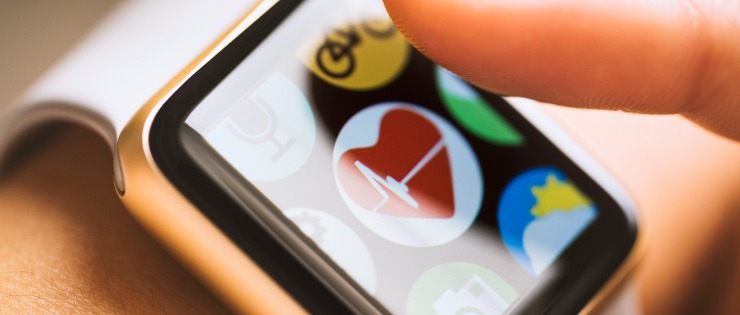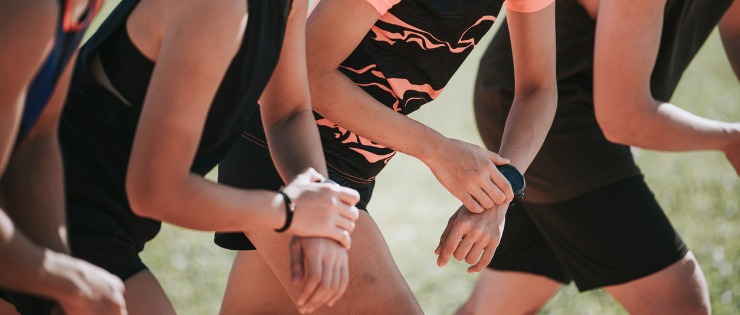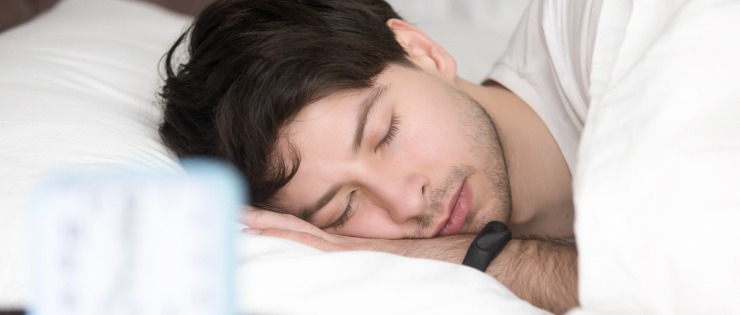Are Fitness Trackers Accurate?
Sleep experts believe fitness trackers can’t give accurate details on sleep, particularly the stages of sleep. Rapid Eye Movement (REM) and non-REM sleep can only be measured through brain waves and eye movement, which fitness trackers can’t do. While the devices give a good indication of the time you spent sleeping, sleep experts believe an accelerometer can’t provide accurate information on sleep based on heart rate patterns alone.
Most fitness trackers ask you for information during the set-up process that assists with collecting and interpreting the data each day. If the data you provide isn’t accurate, then the information the wearable provides won’t be accurate either. By entering information as accurately as possible, you’ll gain the most accurate data.
How you wear your fitness tracker will have a bearing on the accuracy of the data too. Always wear your tracker on your non-dominant wrist so that fewer hand movements are counted as steps. For the most accurate step count, take your fitness tracker off your wrist and place it in your pocket, however you won’t gain data on your heart rate as it needs to touch the pulse on your wrist.
The heart rate recordings are most accurate when the user is at rest. When active, the heart rate recording can be a little less accurate. Different models of fitness trackers will provide different data. Some models will be more accurate than others.
Remember, fitness trackers are designed to give you a good indication of your lifestyle. It may not give you the exact number of steps you took during the day, but you will be able to tell if you took more than yesterday. The heart rate monitoring may not be perfect, but it’s not designed to replace a medical device. Instead, it’s a good indication of your heart rate that you can use to compare how much it varies depending on your level of activity. A fitness tracker should never be used in place of a GP. If you have any concerns about your health, make an appointment to see your doctor.

Benefits of a Fitness Tracker
A fitness tracker can provide information on a range of points that can help keep you fit and healthy. The information available will depend on the brand and model, but most fitness trackers provide similar benefits.
Goal Tracking
You might set a goal, but if you're not tracking your progress towards it, you’re less likely to achieve the goal. Your device can help keep you on the right path. It’s easy to assume we’re making progress but the tracker doesn’t lie - you’ll know exactly how you’re tracking. Seeing daily progress can give you a sense of accomplishment which increases motivation.
Helps Keep You Accountable
Even if you tell yourself that you’re going to exercise daily, it’s often not enough. People find that they are held more accountable if they tell at least one person of their commitment or they use a fitness tracker. Most of us can’t remember how many days in a row we’ve exercised but a fitness tracker knows exactly.
Eating a Healthy Diet
While your fitness tracker doesn’t know what foods you’re putting in your mouth, you’re more likely to watch what you eat if you’re exercising and spending time tracking your fitness. A tracker helps remind you how much effort it takes to burn the empty calories you’re consuming in the form of junk food and alcohol.

More Sleep
A fitness tracker can give you an indication of roughly how many hours and minutes of sleep you’re getting each night. If a tracker shows that you’re not sleeping well, you may be more likely to make a conscious effort to go to bed earlier for the rest of the week.
Heart Health
A fitness tracker can help you keep a check of your heart rate by measuring your pulse, both at rest and while exercising. Your knowledge about your pulse and heart rate can be improved through a fitness tracker and alert you to any irregularities so you can follow up with your doctor. A fitness tracker can help ensure any vigorous exercise doesn’t raise your heart rate too high.
Connecting with Friends
Some people enjoy connecting with friends and family members through their fitness tracker. Some friendly rivalry about exercising not only keeps you motivated, it also helps you stay connected. Loneliness can have a detrimental impact on our mental and physical health, but having a reason to stay in touch can help reduce loneliness. Some people join a group with like-minded people using fitness trackers and share their progress with one another.

Are There Any Risks of Fitness Trackers?
With the rise in popularity of fitness trackers, there have been concerns raised about their possible risks. The two main concerns people have involve personal safety and possible emissions.
Fitness Trackers and Personal Safety
The eSafety Commissioner warns wearables such as smartwatches and fitness trackers have some risks around stalking and abuse. Changing all the privacy settings on your device from public to private will ensure the location details aren’t available to others. Check the settings to see if your device is linked to any social media channels that may provide location details of the device to others. Don’t use any identifying names if your device has a name setting. Joining a fitness group may also pose a risk. If you’re keen to join the group, check all device settings are set to private.
The commissioner also recommends not syncing the device using guest or unsecured wi-fi hotspots and only sync the device to a computer that you’re in control of. Be wary of a device that has been supplied to you or your child by anyone other than a person you trust. When you’re not wearing your device, keep it in a safe place so that it can’t be tampered with or synced to another device without your knowledge. Use a strong password for your device and other devices that it’s synched. Taking a few precautions with your fitness tracker should keep you safe.
Accessing any device while exercising can cause the user not to lose awareness of their surroundings. If you’re out walking or running in the street or park, make sure you’re not fixated on any device for too long. The distraction can put you at risk of not seeing a car, a trip hazard or a potential attacker. A quick look at your device is fine but it’s best to wait until you’re in a safe location to be looking thoroughly at your tracker or mobile phone app.
Emissions from Personal Trackers
Fitness trackers are designed to be worn all day every day if you want to keep track of your activity levels as well as sleep. People have questioned if there’s any health risks in wearing an electronic device on the body for that long. Fitness trackers, like smartwatches, have been found to be safe as the emissions of electromagnetic field and radiofrequency radiation are low. The levels aren’t considered to cause any risk of cancer or interruptions to a wearer’s DNA.

Can Fitness Trackers Really Save a Life?
There have been many stories in the media about fitness trackers alerting the wearer to an abnormal heart rate. A sudden spike or drop in heart rate can indicate a range of potentially serious health problems. The reports have included people suffering from a heart attack, aneurysm, or blocked vessels in the lungs, known as a pulmonary embolism.
Should Some People Avoid Fitness Trackers?
For some people, the data provided by their fitness tracker can be dangerous. A person with an eating disorder or an obsessive-compulsive behaviour can use the data from their device to change their behaviour or make their condition worse.
Health Insurance Extras
Fitness trackers can help you keep an eye on your workout progress, but keeping an eye on your general health is just as important. With HIF, certain extras policies will cover general dental, optical, physio (in case you sustain an injury at some point along your fitness journey), chiro, pharmacy, complementary therapies and more.